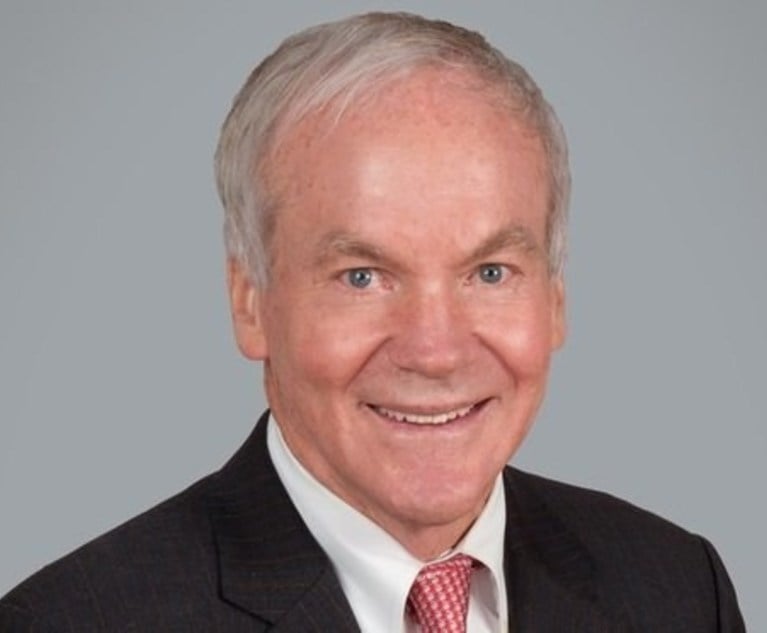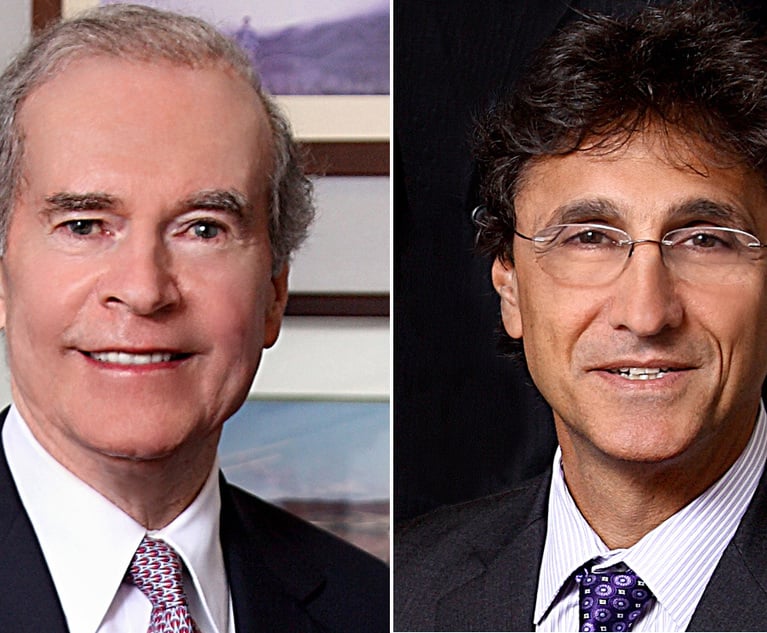 John L.A. Lyddane
John L.A. Lyddane An Unfortunate Ruling on Discovery of Quality Assurance Minutes
The Second Department recently decided 'Siegel v. Snyder', which broadly expands discovery of quality assurance documents and statements despite the clear statutory prohibitions. Before this error is corrected by the legislature or the Court of Appeals, it should be expected that there will be considerable activity in this area of discovery for pending malpractice cases.
January 14, 2022 at 12:00 PM
8 minute read
Within the last month, the Appellate Division, Second Department created a new paradigm with respect to the discovery of quality assurance materials in the course of medical malpractice litigation. On Dec. 22, 2021, the court decided Siegel v. Snyder, ___ NYS 3d ___, 2021 NY Slip Opinion 07264, which broadly expands discovery of quality assurance documents and statements despite the clear statutory prohibitions of §6527 of the Education Law and §2805-m(2) of the Public Health Law. Before this error is corrected by the legislature or the Court of Appeals, it should be expected that there will be considerable activity in this area of discovery for pending malpractice cases.
The underlying facts are simple enough, involving a patient who died following admission through the emergency room after he was struck by a car and sustained a brain injury. Within several months after the patient's treatment in 2015, the quality of the care provided was reviewed at three meetings of the hospital's Trauma Peer Review Committee, whose activities the court described as having been in accordance with the relevant statutes. A lawsuit by the decedent's estate followed in 2016, and discovery of the minutes of the peer review committee was demanded in the course of discovery. The institutional defendants sought a protective order based upon the verbatim prohibition of discovery contained in both statutes, and offered a redacted version of the minutes consistent with their interpretation of what was discoverable. The Supreme Court, following in camera inspection of the unredacted minutes, ordered a much broader disclosure of their content, which resulted in the issue being presented to the Appellate Division.
This content has been archived. It is available through our partners, LexisNexis® and Bloomberg Law.
To view this content, please continue to their sites.
Not a Lexis Subscriber?
Subscribe Now
Not a Bloomberg Law Subscriber?
Subscribe Now
NOT FOR REPRINT
© 2025 ALM Global, LLC, All Rights Reserved. Request academic re-use from www.copyright.com. All other uses, submit a request to [email protected]. For more information visit Asset & Logo Licensing.
You Might Like
View All

CPLR Article 16 Apportionment And Dismissed Defendants Medical Malpractice
14 minute read

Westchester Med Mal Case Resolved in Record Pre-Verdict Settlement for $35.6 Million
Trending Stories
- 1'It's Not Going to Be Pretty': PayPal, Capital One Face Novel Class Actions Over 'Poaching' Commissions Owed Influencers
- 211th Circuit Rejects Trump's Emergency Request as DOJ Prepares to Release Special Counsel's Final Report
- 3Supreme Court Takes Up Challenge to ACA Task Force
- 4'Tragedy of Unspeakable Proportions:' Could Edison, DWP, Face Lawsuits Over LA Wildfires?
- 5Meta Pulls Plug on DEI Programs
Who Got The Work
Michael G. Bongiorno, Andrew Scott Dulberg and Elizabeth E. Driscoll from Wilmer Cutler Pickering Hale and Dorr have stepped in to represent Symbotic Inc., an A.I.-enabled technology platform that focuses on increasing supply chain efficiency, and other defendants in a pending shareholder derivative lawsuit. The case, filed Oct. 2 in Massachusetts District Court by the Brown Law Firm on behalf of Stephen Austen, accuses certain officers and directors of misleading investors in regard to Symbotic's potential for margin growth by failing to disclose that the company was not equipped to timely deploy its systems or manage expenses through project delays. The case, assigned to U.S. District Judge Nathaniel M. Gorton, is 1:24-cv-12522, Austen v. Cohen et al.
Who Got The Work
Edmund Polubinski and Marie Killmond of Davis Polk & Wardwell have entered appearances for data platform software development company MongoDB and other defendants in a pending shareholder derivative lawsuit. The action, filed Oct. 7 in New York Southern District Court by the Brown Law Firm, accuses the company's directors and/or officers of falsely expressing confidence in the company’s restructuring of its sales incentive plan and downplaying the severity of decreases in its upfront commitments. The case is 1:24-cv-07594, Roy v. Ittycheria et al.
Who Got The Work
Amy O. Bruchs and Kurt F. Ellison of Michael Best & Friedrich have entered appearances for Epic Systems Corp. in a pending employment discrimination lawsuit. The suit was filed Sept. 7 in Wisconsin Western District Court by Levine Eisberner LLC and Siri & Glimstad on behalf of a project manager who claims that he was wrongfully terminated after applying for a religious exemption to the defendant's COVID-19 vaccine mandate. The case, assigned to U.S. Magistrate Judge Anita Marie Boor, is 3:24-cv-00630, Secker, Nathan v. Epic Systems Corporation.
Who Got The Work
David X. Sullivan, Thomas J. Finn and Gregory A. Hall from McCarter & English have entered appearances for Sunrun Installation Services in a pending civil rights lawsuit. The complaint was filed Sept. 4 in Connecticut District Court by attorney Robert M. Berke on behalf of former employee George Edward Steins, who was arrested and charged with employing an unregistered home improvement salesperson. The complaint alleges that had Sunrun informed the Connecticut Department of Consumer Protection that the plaintiff's employment had ended in 2017 and that he no longer held Sunrun's home improvement contractor license, he would not have been hit with charges, which were dismissed in May 2024. The case, assigned to U.S. District Judge Jeffrey A. Meyer, is 3:24-cv-01423, Steins v. Sunrun, Inc. et al.
Who Got The Work
Greenberg Traurig shareholder Joshua L. Raskin has entered an appearance for boohoo.com UK Ltd. in a pending patent infringement lawsuit. The suit, filed Sept. 3 in Texas Eastern District Court by Rozier Hardt McDonough on behalf of Alto Dynamics, asserts five patents related to an online shopping platform. The case, assigned to U.S. District Judge Rodney Gilstrap, is 2:24-cv-00719, Alto Dynamics, LLC v. boohoo.com UK Limited.
Featured Firms
Law Offices of Gary Martin Hays & Associates, P.C.
(470) 294-1674
Law Offices of Mark E. Salomone
(857) 444-6468
Smith & Hassler
(713) 739-1250






